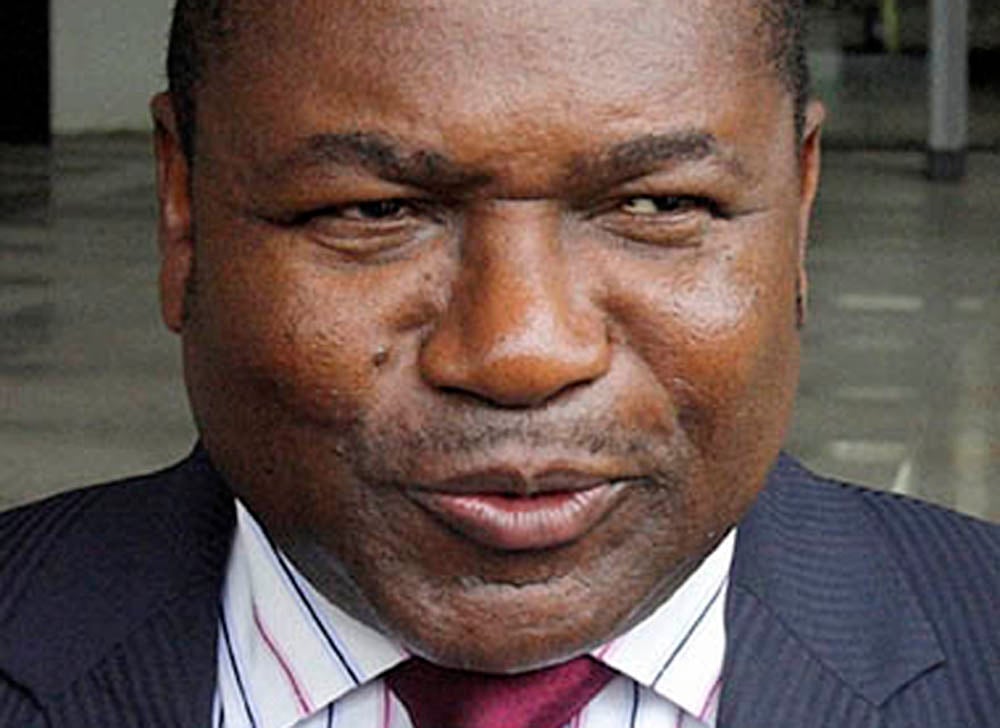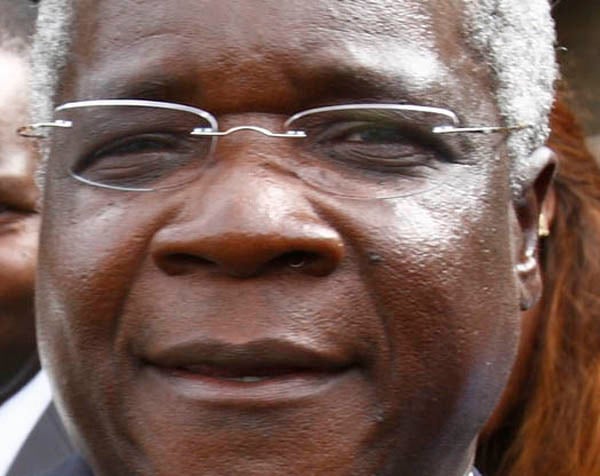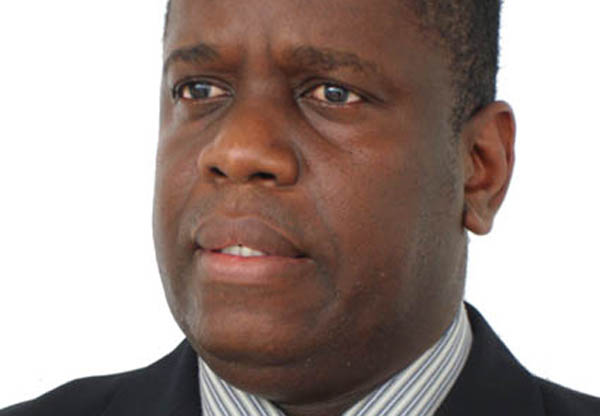Growing support for the MDM could deflect attention from the old
The noon sun bakes down as Venancio Mondlane strides along a dusty street in the neighbourhood of Malhazine outside Maputo. Even the sweltering 30°C heat does not slow down the opposition campaigner as he goes from door to door handing out pictures of his party’s presidential candidate, Daviz Simango.
Mondlane and a small team of campaigners from the Mozambique Democratic Movement (MDM) have no T-shirts to give out, but hope their message would be enough. The MDM’s appeal, he says, is that the party had no part in the ugly conflict between rivals Frelimo and Renamo.
“The MDM is the only party that hasn’t dirtied its hands,” he assures a woman selling tomatoes on the roadside.
Further down, a woman reluctantly answers the door. “To have peace we need to vote for Daviz Simango,” he tells her. “Think about it,” he says as she shuts the door.
Social problems — among them domestic violence, high HIV rates and growing unemployment — are stoking discontent in Maputo’s vast urban sprawl.
Growing inequality is believed to have helped the MDM in its surprising gains in municipal polls last year, which were boycotted by Renamo. Simango’s party now has mayors in three out of 10 provincial capitals.
Mondlane (39) nearly toppled the incumbent Frelimo mayor, garnering 42% in Maputo, traditionally a ruling party bastion.
“It was a David and Goliath battle, but I didn’t have the sword to chop off the giant’s head,” he says.
Mondlane hopes to win his first parliamentary seat in this election and believes his party will substantially increase the eight seats they won in 2009, the first election the party contested.
Often described as a “Renamo breakaway”, Simango’s party has attracted a number of Frelimo dissenters such as Mondlane. Its platform is an eclectic mix of religious tolerance and free-market principles. It stands to the left of traditionalist Renamo and to the right of formerly Marxist Frelimo.
Its emergence has altered a political landscape dominated, since the end of the civil war, by Frelimo and Renamo. Hundreds of kilometres away from the conflict, the effects of fighting are felt.
“With us the killing is finished,” Mondlane assures Marta, an older woman.
Her son escaped death a few months ago when the military convoy escorting his car was ambushed en route to the central city of Beira.
“He managed to crawl into the bush,” she says.
Speaking of the fighting that raged on and off for more than a year in Sofala province, Marta says: “My blood pressure started rising again.”
For months, ambushes by suspected Renamo members along the 100km stretch of the road after the Save River (considered the natural division between northern and southern Mozambique) towards Beira almost paralysed traffic between the north and south.
There is no official casualty list of the disturbances between April and August last year, but local media reported heavy casualties on the government side. This led to perceptions that, although Renamo could not match the army’s firepower, the government stood little chance against the experienced band of guerilla fighters.
Fighting was heaviest in the remote Gorongosa mountains after government forces launched a full-scale assault on Afonso Dhlakama’s bush camp in October.
Rumours that Renamo fighters were positioned all over the country, some within a 100km radius of Maputo, stoked feelings of unease. It did not help that Mozambique featured on the lists of countries with advisory warnings for travellers.
Mozambique has memories of violence. An estimated one million Mozambicans died in the civil war that ended in 1992. Hence the relief was collective when Dhlakama and President Armando Guebuza embraced after signing a new peace pact in September.
Analysts are divided about how the violence could play out in the results of these elections.
“Society wants to distance itself from this political scenario where you see political parties being armed,” says Hortencio Lopes, a researcher for the Centre for Mozambican and International Studies.
“The two parties that signed the peace accord in 1992 [Frelimo and Renamo] will lose voters who want to get away from these armed parties,” he tells the Mail & Guardian.
British-based independent analyst Markus Weimer says voters who are strongly opposed to the use of arms will be attracted to MDM, which presents itself as the only party not to have taken up arms.
Yet voters in Renamo strongholds in the centre and north may see Dhlakama as a triumphant figure who managed to force the Frelimo government to the negotiating table, says Weimer.
Frelimo opted for the peace deal, not just because of military pressure but also to split the opposition vote, according to analysts. Frelimo also needs Dhlakama’s participation to legitimise the poll and remove the risk of the elections being questioned.
Dhlakama’s comeback
Dhlakama may have hit the campaign trail late — several weeks after both his rivals — but when he did he showed why government still listens to him. He may be a one-man show but he is pulling the numbers and his crowds have increased from those that turned out for his rallies in 2009.
Dhlakama’s “superstar” status shook the ruling party into more action. It drew into its deep pockets, painted the countryside Frelimo red and rolled out a formidable election machinery.
Dhlakama, who calls himself the “Father of Mozambican Democracy”, saw his popularity wane from the time he narrowly lost to Joaquim Chissano in 1999, though there was widespread belief that he was cheated of a victory. In 2009 he garnered just 16%, prompting many analysts to write him off as a spent force.
“He was a myth. He lived in the bush. Most importantly, when you speak to some of the youth, he is known as the guy that kicks Frelimo’s ass. He doesn’t take shit from them. He has guns,” says independent newspaper owner Erik Charas.
The MDM had no part in the negotiated settlement between the government and Dhlakama, which led to changes to the election laws.
One of the concessions Dhlakama managed to wrest from the Frelimo government was a greater say on the National Election Commission (CNE).
A widely held perception in Mozambique is that whoever controls the commission wins elections. In the past Frelimo has been accused of packing the CNE with party appointees.
These changes mean that, although Renamo will not be in control, neither will Frelimo, according to Dhlakama’s supporters.
Uneasy peace
But Renamo’s guerillas, whose numbers are unknown but estimated to be several hundreds, are almost certain to hang on to their guns over the election period.
Under the peace deal they are to hand their weapons over to a team of international observers, a process that is unlikely to be accomplished before the elections on October 15.
The number of guns in Renamo’s hands are also unknown. There have been media reports of the guerillas breaking into the government’s armouries and stealing weapons when they need them.
The question is: Will Dhlakama resort to violence if the result does not favour Renamo?
“Maybe there are secret chapters that guaranteed him a certain position, funding and wealth,” says Charas, echoing widely held perceptions that the peace deal involved secret financial gains for Dhlakama.
“All he wants is to beat the MDM, not beat Frelimo,” says Charas.
“Dhlakama’s main goal now is to maintain his position as the leader of the opposition and I think that is very easy for Frelimo to guarantee.”
The pre-election period has been marred by cases of verbal and physical violence largely directed at the MDM by Frelimo’s “shock groups”, whose job is to obstruct opposition campaigns.
The violence against the MDM tends to be worst in areas Frelimo considers its traditional bastions.
Yet in the long run these skirmishes may be Frelimo’s undoing. Simango’s strategy is to attract a new generation of Mozambicans who have never known war.
“We want a truly civilian government, not one that goes back to the bush when it loses the war,” Mondlane tells a heavily pregnant woman in Mahlazine.
“That baby will be born into a new era,” he assures her.
A political transition could boost investment
The stakes are higher than ever when 10-million Mozambicans go to the polls to vote in presidential and parliamentary elections on October 15. Huge gas finds in the far northern Rovuma Basin’s deep waters could be a game changer for Mozambique, with the potential to double the country’s gross domestic product in the next two decades.
Whoever wins will preside over what could be unprecedented growth and foreign investment. Foreign oil companies are keen to pour billions into the gas export project and the political transition is being watched with interest.
Presidential candidates
Filipe Jacinto Nyusi
The former defence minister (see “Mozambique: New president, same old guises?“), who has a low public profile, is campaigning on an offer of “continuity and change”. The change aspect is to appeal to voters who are tired of the Frelimo brand of governance that is allegedly riddled with corruption and growing inequality.

Afonso Dhlakama
Fresh from his two-year stint in the “bush” from where he waged a military insurgency against the government, the 61-year-old is running for the fifth time.
He has participated in every poll since the first multiparty elections were held in 1994. Dhlakama hopes a popular outcome will revive his Renamo party that has, in recent years, been written off to the political dustbins by many people.

Daviz Simango
A former member of the rebel movement Renamo, Simango has impressed many with his performance as mayor of Mozambique’s second-largest city, Beira, a position he has held for more than a decade.
Founded in 2008, the party won control of several municipalities in last year’s local elections that were boycotted by Renamo.
MDM hopes to overtake Renamo and become the official opposition. Renamo dismisses the MDM as being an “old Frelimo in new clothing” and designed by Frelimo to reduce Renamo’s votes. The MDM denies the allegation.
